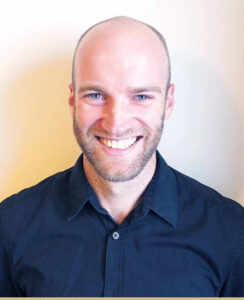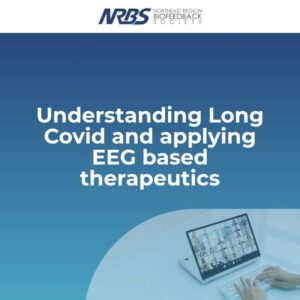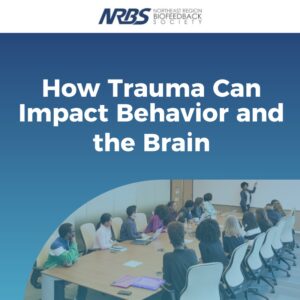Description

Presented by: Brendan Parsons, PhD
Neurofeedback stands at the cutting edge of modern intervention methods, weaving together neuroimaging, advanced technology, and an array of therapeutic and coaching strategies. Despite being a field underpinned by scientific rigor—boasting over 3,000 peer-reviewed studies—it’s often regarded by practitioners as having an ‘artistic’ aspect.
This creativity is particularly evident in crafting qEEG-informed protocols and their implementation in a clinical context. It’s well understood among professionals that neurofeedback is not as straightforward as merely setting a threshold to “inhibit theta” and then relaxing with a cup of coffee. Instead, neurofeedback involves a complex interaction between three key elements: the trainee (encompassing both their brain and mind), the trainer, and the feedback system. The art lies in fine-tuning this triad to unlock the most effective intervention and achieve positive outcomes.
With nearly two decades of experience, I’ve had the privilege of both learning from leading experts around the world and directly applying this knowledge through extensive hands-on practice. My journey has encompassed analyzing over 50,000 qEEGs, conducting 10,000 neurofeedback sessions personally, and overseeing another 100,000 sessions through direct supervision. I’ve had the pleasure of accompanying some afflicted by a severe neurological disorder all the way to world-class professional athletes. My approach doesn’t seek to reinvent neurofeedback; instead, it aims to distill it into its most fundamental principles, grounded in well-established scientific evidence.
BIOGRAPHY
Brendan Parsons, PhD. is a neuroscientist with a passion for performance. He has spent all 15 years of his career in scientific research and clinical practice, looking for the most efficient tools for enhancing performance across cognitive, emotional, behavioral, and physiological domains. Whether they are being applied to those with difficulties – children with developmental disorders, adults with emotional issues, or aging populations with neurodegenerative conditions – or those in high-performance domains – professional athletes, business leaders or high-stress-high-precision jobs like pilots, engineers and police/military – the goal is one and the same: to enhance cognitive, emotional, behavioural and physiological functions. To that end, he has developed expertise in neurofeedback and biofeedback, and his Ph.D. thesis combined neurofeedback with NeuroTracker to demonstrate the potential for improving learning by hybridizing these techniques. Now based in France, he educates professionals on how to help others achieve these enhancements while still maintaining an active clinical practice and contributing to neuroscientific research.




